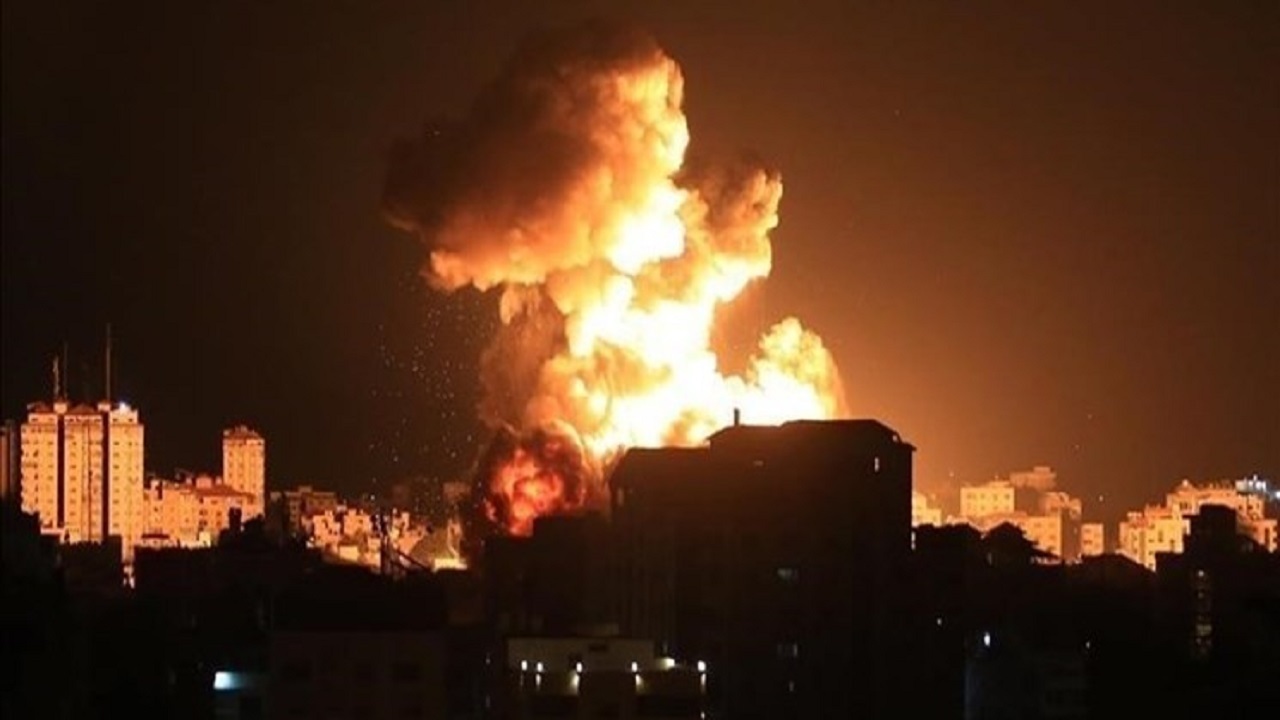Ali Mousavi Khalkhali told the Strategic Council on Foreign Relations that although American forces mostly left Iraq at the end of Mr. Nouri al-Maliki’s government, the dominance and presence of this country remained strong. After that, when Daesh attacked Iraq, the Americans created a coalition to fight Daesh and returned to Iraq under the pretext, so Americans still see Iraq as an occupied country.
He made the remarks regarding the reaction of the Iraqi government to the recent US attacks on the headquarters of the resistance groups in this country.
This expert on regional and Iraqi issues continued that Iraq’s airspace has been in the hands of the United States since the time of George Bush Jr., who attacked this country. Therefore, the airspace of Iraq has always been under the control of the Americans, and even one of the largest American military bases is stationed at the Baghdad airport as a monitoring base for incoming and outgoing flights.
Mousavi further emphasized that in addition to America’s security and political dominance over Iraq, the economic artery of this country is also in the hands of the United States. He added that according to a 1991 agreement within the “oil for food” program framework between Iraq and the United Nations, a bank account in the US was designated to be deposited with the revenues of Iraqi oil sales so that Iraq could purchase its basic goods through this account. This account is still in place, and therefore, it is no surprise that Americans still influence Iraq.
In response to how much can the scope of tension between Iraq and America expand? He said, “There is a strong possibility that the tension between the Iraqi and American resistance groups will continue, but we don’t know how long and when?” But as long as the Gaza crisis, the US threat against the resistance movements in the region, and also the pressure on Iran as the main base of the resistance axis continues, in the shadow of these tensions, the confrontation between the US and the resistance groups in Iraq will continue. Of course, the resistance movement groups do not take orders from Iran but operate along the resistance axis. It is a fact that the resistance groups consider the weakening of Iran their own weakening; therefore, until a balance is established between the parties, this tension will be maintained unless one side loses in these tensions.
This expert on the issues of the region and Iraq stated about the solution to reduce these tensions: it is natural for the Iraqi government to be worried about this situation. Iraqis went through the crisis of terrorism, which was very serious and dangerous, and now they are trying to move towards peace and stability. In 2022, they experienced 10% economic prosperity, and their oil revenues increased, so they are trying to form a welfare state. However, in the meantime, a major regional crisis has developed that can challenge the realization of this goal. As the scope of the crisis in the region increases, it will directly impact the developments in this country, especially since the Iraqi government is worried that the country will be dragged into regional tensions.
He pointed out that Iraq does not want to be an arena for settling accounts with different powers in the region because their political, economic, and security interests require it.
In response to how much these developments and tensions are influenced by America’s support for the Israeli regime in the Gaza war? Mousavi said: These developments are definitely affected by the Gaza issue. As the resistance groups weaken, especially the resistance groups in Palestine, Syria, and Lebanon, the resistance currents in Iraq and Yemen also become weakened; therefore, they are trying not to weaken the resistance current in the region in general because they know that if the axis of Palestinian resistance weakens, it will be to their detriment as well.










0 Comments